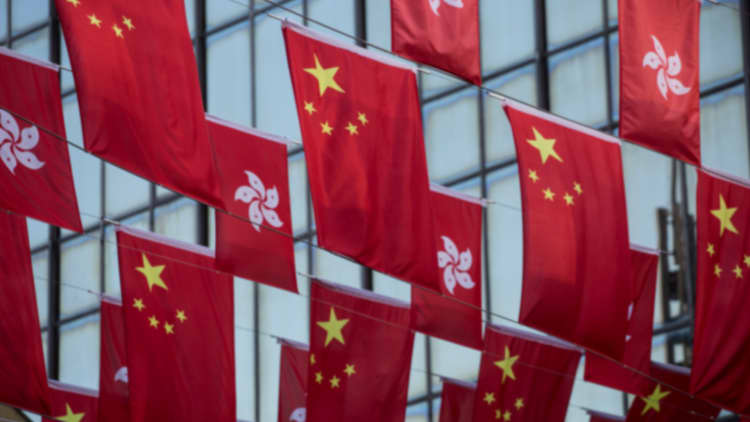Hong Kong's Chief Executive Carrie Lam reiterated on Thursday that the controversial bill that led to mass protests will be fully withdrawn with "no debate."
She said at a regular press briefing on Thursday morning that the bill "will be fully withdrawn, there will be no debate and no voting."
On Wednesday evening, Lam had announced the formal withdrawal of a contentious extradition bill that has sparked months of mass protests that have turned increasingly violent. The bill, if passed, would have paved the way for people in Hong Kong to be sent to mainland China for trial.
It was one of five demands by protesters, with the others including the retraction any characterization of the movement as a "riot," and to drop all charges against protesters.
The withdrawal now gave demonstrators "no excuse to continue violence," China's state-owned newspaper China Daily said on Thursday.
Hong Kong, a British colony, returned to Chinese rule in 1997. It is now a special administrative region under the "one country, two systems" principle that gives its citizens some legal and economic freedoms not given in mainland China. But there have been worries among Hong Kong citizens that their civil rights are being eroded under Beijing's rule.
Lam's withdrawal of the bill was not "too little, too late," Bernard Chan, convener of the executive council of Hong Kong told CNBC before Lam's Thursday briefing.
In fact, it's all just been "a bit of a technicality" for her to formally announce the withdrawal, he said, as Lam had already said in June that the bill was suspended and "dead."
Moving forward
Lam also reiterated Thursday her commitment to the four actions she promised earlier, saying she was aware that the discontent in society extends "far beyond the bill. She said she hoped the measures can help the city to move on.
She had proposed four actions in order for Hong Kong to move forward. They include:
- The full withdrawal of the extradition bill.
- To initiate "direct dialogue" with the community.
- The appointment of two new members to the Independent Police Complaints Commission (IPCC) to investigate alleged police violence.
- To work with community leaders and professionals to find solutions to society's "deep-seated" problems.
Chan said Lam's announcement on Wednesday is a response to four out of five demands by the protesters.
The independent commission looking into police conduct will be made up by a panel of five members from the UK, New Zealand, Canada, and Australia, said Chan. That's to ensure fairness and objectivity, he added.
The five demands are: A full withdrawal of the proposed extradition bill; a retraction of the characterization of the movement as a "riot," a retraction of the charges against anti-extradition protesters, the establishment of an independent committee to investigate the Hong Kong Police Force's use of force, and the implementation of universal suffrage for the city's chief executive officer role and its legislature by 2020.
The demand for universal suffrage and electoral reform "is a tricky one because it can't just be decided by Hong Kong," said Chan.
Beijing needs to agree to that demand, he said, but the central government has already made its position clear on that issue in 2014. He was referring to the Beijing's rejection of the electoral reform that led to previous mass demonstrations in 2014.
Watch: What is Hong Kong's relationship with China?



